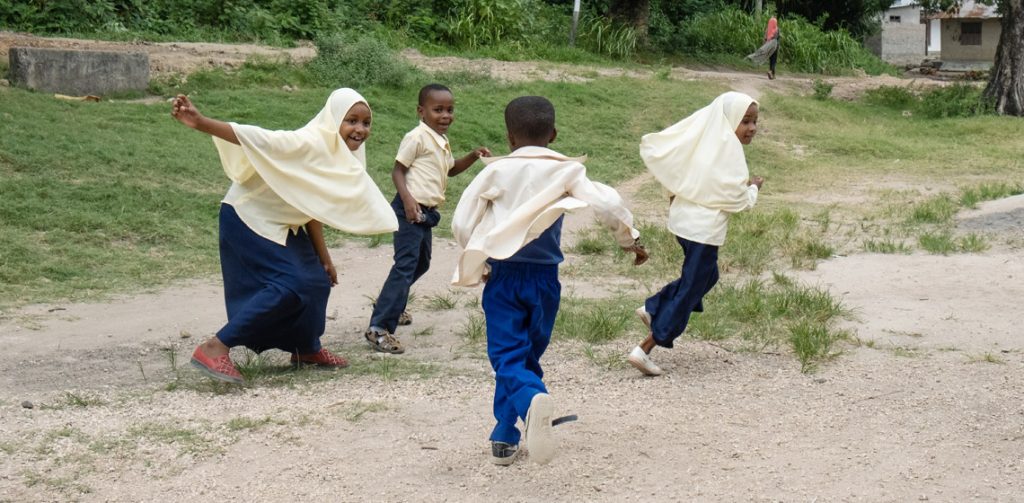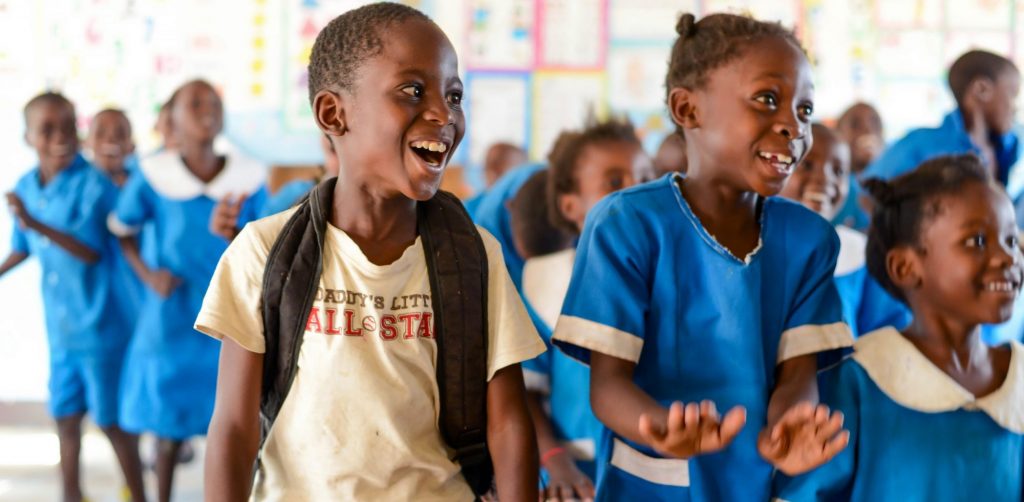The Inclusive Education Programme is about ensuring that children and young adults with disabilities have access to a quality education that is inclusive, removes barriers to learning, respects rights, and leads to fulfilment of potential.
The Inclusive Education Programme is a collaboration between NAD and the Enabling Education Network (EENET) across several countries, and implementation in Zanzibar is coordinated by Madrasa Early Childhood Programme – Zanzibar (MECP-Z).
Understanding barriers to learning in Zanzibar
Children with disabilities are among the most frequently left behind in education. According to the Zanzibar chapter of the Tanzania Human Rights Report of 2017, children with disabilities living in Zanzibar face many barriers to quality education.
Less than 20% of schools have at least one teacher trained in how to identify and teach children with disabilities, and only 8% of all schools reported having at least one teacher trained in gender-responsive pedagogy.
Promoting inclusive education
With the local coordination of MECP-Z, we work with multiple stakeholders in Zanzibar to support the process of change in the education system so that children with disabilities can access, participate and achieve in education on the same basis as their peers.
NAD, in collaboration with EENET, has developed the Inclusive Learning Approach, a holistic approach to Inclusive Education with two main components:
- the Inclusive Teaching component
- the Inclusive Advocacy component
Through the Inclusive Teaching component, we work with schools and the education systems to give them the tools necessary to become inclusive.
An effort to reform teacher training has been in focus from the beginning of NADs engagement in Zanzibar, and today a new model for training teachers in Inclusive Education is being developed and tested.
A process to develop a common Inclusive Education curriculum for all teacher training colleges and universities has also started and is being led by the State University of Zanzibar (SUZA), with technical support from EENET.
Through the Inclusive Advocacy component, we work with persons with disabilities and DPOs to strengthen their knowledge on Inclusive Education and the use of national and international legal frameworks, so that they can effectively advocate for their rights, raise awareness and hold their government accountable.
The Community Based Inclusive Development (CBID) programme
Efforts to ensure Inclusive Education in Zanzibar are additionally supported by the CBID programme. Through trainings in Community Based Inclusive Development the programme builds an understanding of Inclusive Education among government authorities, including education authorities and CBID volunteers.
The CBID Stakeholder Forum, an informal network with participants from DPOs, government and NGOs, contributes to the mainstreaming of IE into all sectors in Zanzibar. CBID is part of our Human Rights Advocacy (HRA) programme. Read more about CBID here.

Main achievements in Zanzibar
Some of the main achievements of our Inclusive Education work and partnerships are:
The Inclusive Teaching component
- Children with disabilities and other excluded children have increasingly experienced inclusive teaching practice which has helped more learners to be able to read and write. One strategy teachers are using is to develop Individual Education Plans (IEPs) for learners experiencing various barriers to learning.
- The school environments of the pilot schools have become more accessible. Classrooms, toilet facilities and other parts of the school compounds have been renovated to make it more disability friendly. These physical improvements were not financed by NAD, but made on the initiative of the school communities.
- An increasing number of learners with and without disabilities are attending the pilot schools, including an increasing number of girls.
- The last 3 modules on IE for teacher training have been developed and the first has been tested in 8 pilot schools.
- Observers have been identified among those who would normally monitor schools, for instance school inspectors. These have been trained in Inclusive Education and how to monitor progress towards this goal in the target schools.
- An evaluation of the Inclusive Education Programme conducted in 2018 found that teachers that had received the training had increased confidence in their work. They felt more able to assess and accommodate a diversity of learners and use new strategies in their classrooms, such as group work, as well as differentiate to ensure the participation of all learners.
The Inclusive Advocacy component will start in 2022.

